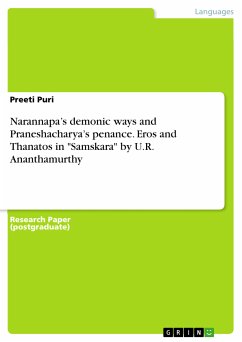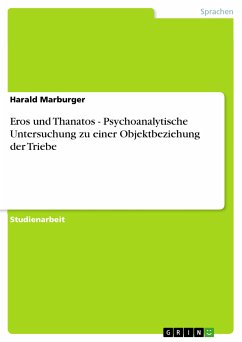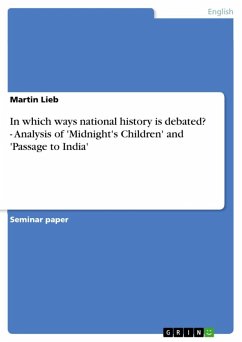Research Paper (postgraduate) from the year 2016 in the subject Literature - Asia, , language: English, abstract: ‘Desire’, ‘Pleasure’, ‘Passion’ ‘Wish’ or ‘Sex’: by whatever name ‘Eros’ is addressed, it has always been reckoned as a stumbling block in the perennial human quest to attain ‘Moksha’. Sigmund Freud, the ‘Copernicus of Psychology’ put forth the concept of ‘Eros’ and ‘Thanatos’ and posited that one’s life is structured by a rhythmic conflict between ‘Eros’ or life instinct and ‘Thanatos’ or death instinct. ‘Eros’ leads to procreation and persistently constructs a detour for an individual to reach his/ her ultimate goal i.e. death while ‘Thanatos’ chases self-destruction. The confrontation between these two instincts comes into being simultaneously with the birth of an individual. However, since time immemorial a futile attempt has been made to avert this conflict through the proliferation of multifarious endeavors such as by renouncing pleasure, through eschewing of desire and by practicing rigorous self-discipline. This article seeks to explore how ‘Eros’ in the form of Narannapa’s demonic ways and ‘Thanatos’ through Praneshacharya’s penance has been symbolized in U.R. Ananthamurthy’s Samskara. The article will further analyze that in the tug between Praneshacharya and Narannapa’s modus vivendi neither asceticism nor eroticism emerges as an exclusive winner.





